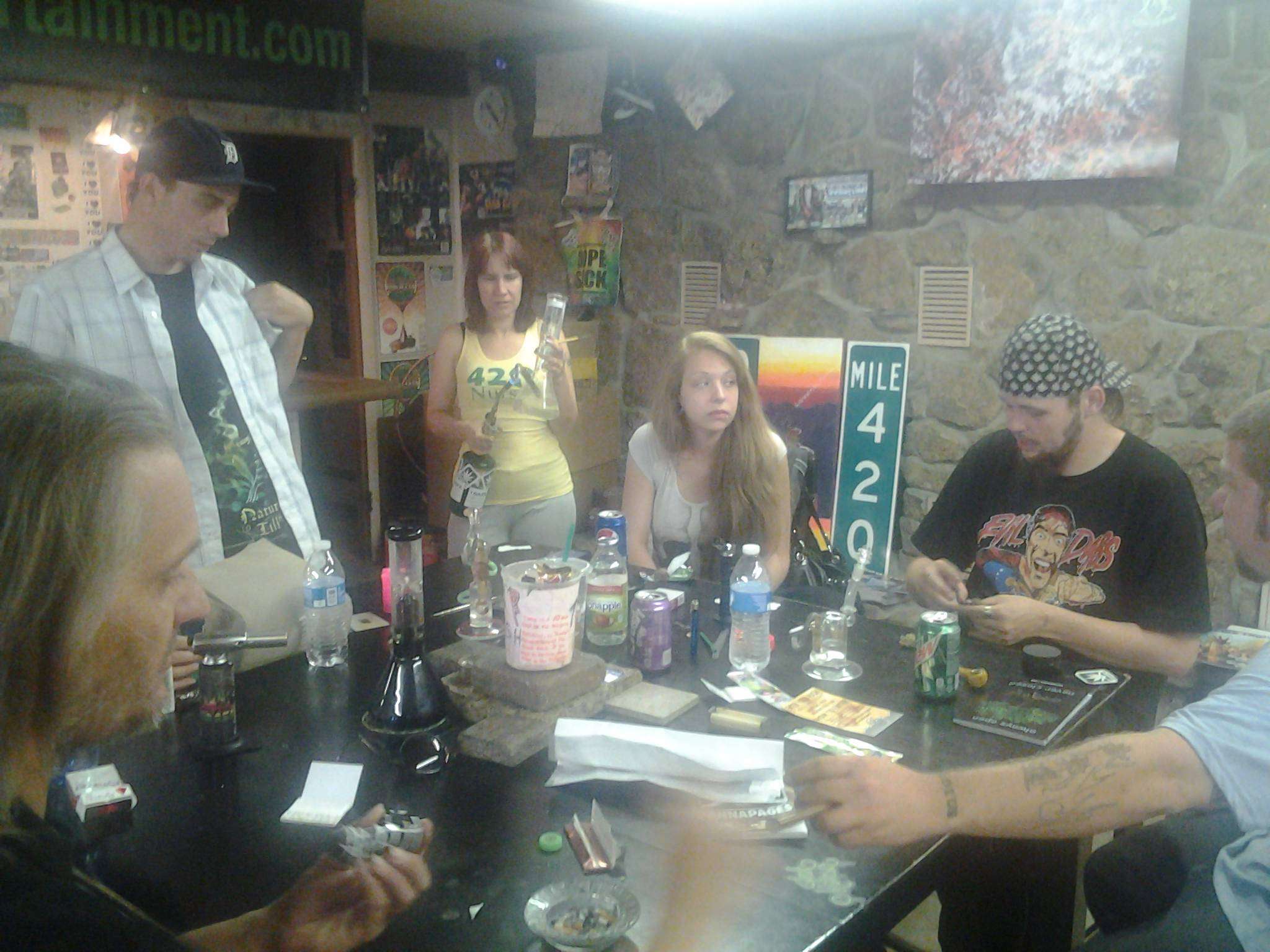Disagreeing With Themselves, Coloradans Say Rules for Marijuana Use Should Be Stricter Than Rules for Alcohol Use

According to Quinnipiac University poll results released yesterday, 61 percent of Colorado voters agree with President Obama that marijuana is less "harmful to a person's health" than alcohol, while an additional 14 percent think the two drugs are equally harmful. Similarly, 59 percent said marijuana is less "harmful to society," and another 15 percent said it is equally dangerous by that measure. It is not surprising, then, that 71 percent of respondents thought "laws regulating the use of marijuana in Colorado" should be either "less strict" than laws regulating the use of alcohol or "about as strict." But do they really mean it?
Perhaps not. In the same poll, more than three-fifths of respondents said marijuana consumption should be prohibited in "bars and clubs where alcohol is served" and at "entertainment events where admission is charged." A plurality (49 percent) even opposed allowing marijuana consumption at "invitation-only entertainment events where no admission is charged," such as the Colorado Symphony Orchestra's "Classically Cannabis" concert series. At the same time, 66 percent said cannabis consumption should be allowed in "members-only marijuana clubs." The latter two positions seem to be a mirror image of the policy enforced by Denver, which allowed the concerts to proceed as invitation-only fundraisers but last month raided Maryjane's Social Club, a members-only hangout for cannabis consumers.
In any case, the rules for marijuana use endorsed in this poll are clearly stricter than the rules for alcohol use, even though a large majority of respondents said they shouldn't be. What gives? I'm not sure, but the same sort of contradiction is apparent in Amendment 64, the 2012 ballot initiative that legalized recreational marijuana in Colorado. Although the amendment says "marijuana should be regulated in a manner similar to alcohol," it also says decriminalization does not apply to "consumption that is conducted openly and publicly," which remains a petty offense under Colorado law. Nobody is sure what "openly and publicly" means in this context, but Denver has interpreted it to cover consumption in any location open to the public. Even if you define the phrase more narrowly, marijuana clearly is not being "regulated in a manner similar to alcohol," which can be consumed in both indoor and outdoor seating of bars and restaurants as well as a wide variety of entertainment venues.
The main concern here seems to be not public safety so much as public sensibilities, especially since the ban on its face does not apply to consumption that is discreet enough to escape attention (such as sucking on a cannabis-infused mint or, arguably, using a vape pen that looks just like an e-cigarette). Denver officials are terrified of anything resembling Amsterdam's cannabis cafés, and even supporters of legalization who would be happy to patronize such establishments may worry that flagrant toking will trigger a backlash. That sort of ambivalence may help explain the inconsistent poll results.
According to this poll, support for Amendment 64, at 54 percent, remains about what it was the day the initiative passed. That's a bit bigger than the 51 percent who admitted using marijuana at some point in their lives. Just 16 percent of respondents said they had consumed cannabis since legal recreational sales began in January.


Show Comments (14)